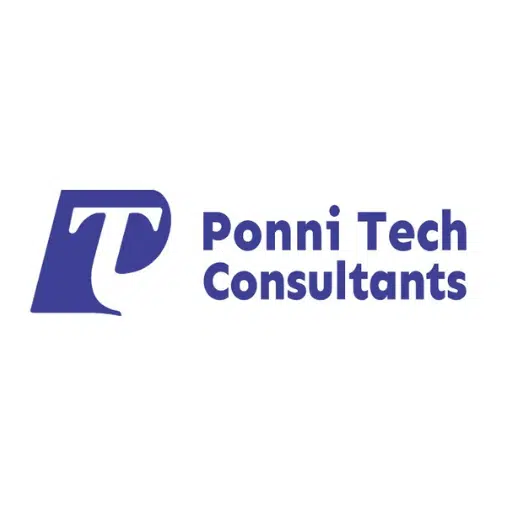Multi-chip modules involve intricate workflows where devices traverse multiple stages, interact with other components, and integrate into sophisticated packages.
However, this complexity brings significant challenges when it comes to lot genealogy—the ability to trace and connect the journey of each unit across its lifecycle, much like a giant family tree. For manufacturers, ensuring traceability means managing vast amounts of data across multiple devices, stages, and directions. Each stage involves distinct test data formats, sources, and unit identifiers, like ECID. Establishing a comprehensive cradle-to-grave genealogy is what’s needed for process and yield learning.
Traditional approaches to genealogy often rely on manual processes and custom software development that struggle to adapt to the virtually limitless interconnections of modern semiconductor workflows. These methods are slow, prone to errors, and lack the scalability demanded by today’s production environments.
This is where yieldWerx’s Lot Genealogy Module comes in, offering a DIY solution that eliminates these bottlenecks without users needing custom software development. By enabling flexible and automated genealogy creation, we empower users to overcome these challenges, delivering unprecedented traceability for MEMS or ASIC multi-chip and multi-stage packages.
Understanding Multistage and Multichip Modules in Semiconductor Manufacturing
In semiconductor manufacturing, multistage refers to the series of processes a device undergoes from initial fabrication to final assembly. These stages generate unique datasets, including electrical characteristics, defect rates, and physical configurations.
On the other hand, a multichip module (MCM) is an advanced packaging technology that integrates multiple semiconductor dies into a single package. Each die may serve a different purpose, such as processing, memory storage, or graphics rendering, and these dies can originate from different wafers or production lots. MCMs are widely used in applications where compact design, high performance, and cost efficiency are critical, such as smartphones, automobiles, aerospace systems, and high-performance computing devices.
Managing interdependencies between multiple dies within a single package is critical to ensuring reliable performance. For example, in a smartphone processor, CPU, GPU, and memory dies are integrated into a single MCM, each tested and manufactured separately but designed to work seamlessly together in the final product.
Importance of Traceability in Multistage and Multichip Modules
Traceability is an integral part of semiconductor lifecycle management. It means that every step in the production process is meticulously logged and can be reviewed for quality assurance. It links test data from wafer fabrication to final assembly and beyond. By correlating failures at the board or system level back to specific manufacturing stages, traceability aids in identifying and resolving defects efficiently. If, for example, a wafer lot is determined to be bad, a company has to be able to trace exactly which customer received products from that specific wafer lot.
Each die comes with its wafer sort data. Once it is packaged, it generates final test data. Then, a multi-chip module, which contains many such packaged chips, undergoes additional rounds of testing. Correlating the test results across each stage and device is essential for ensuring quality and performance.
Moreover, unique identifiers can also authenticate components, reducing the risk of counterfeit parts infiltrating the supply chain. Additionally, traceability supports compliance with evolving regulatory demands, such as sustainability tracking and government-mandated standards, ensuring accountability throughout the production lifecycle.
Unparalleled Functionality for Lot Genealogy
yieldWerx’s Lot Genealogy Module redefines traceability by offering robust features developed to address the unique challenges of multi-chip and multi-stage packages.
Here’s how it works:
1. Comprehensive Stage Connectivity
With yieldWerx, users can connect and trace every stage a device goes through. The module leverages data logged from test records, mapping files, or other sources to establish relationships between stages. This ensures that no step in the process is overlooked.
2. Nth-Level Genealogy Relationships
The module has no limits on the number of stages it can handle. Users can establish genealogy relationships to the nth level, creating a complete picture of a device’s journey, no matter how complex.
3. Multi-Directional and Multi-Device Traceability
Unlike traditional systems that only support linear or unidirectional tracing, yieldWerx enables multi-directional and multi-device genealogy relationships. This flexibility allows manufacturers to track interconnected devices and their interactions throughout the production process.
4. Unit-Level Identification
Using Unit IDs or serial numbers from ECIDs, yieldWerx’s module connects devices and stages with standard lot, wafer, and x/y coordinate identification. This granular tracking provides unmatched clarity and precision in genealogy.
Real-World Success Story
Connecting Four Devices Across 17 Stages
One of our clients faced the daunting task of tracing unit performance across 17 manufacturing stages for 4 interconnected devices. With disparate data sources and multiple unit/die ID formats, their previous manual tracing methods were slow and error-prone. They struggled to find a system capable of connecting multiple devices from various stages that were part of a single multi-chip module/package.
Using our module’s user-friendly interface, they achieved accurate root-cause analysis without requiring any custom programming. They simply had to configure genealogy policies and mappings directly within our system.
By implementing yieldWerx’s Lot Genealogy Module, the client was able to:
- Seamlessly connect multiple devices and stages.
- Trace parametric performances for each die across all stages.
- Drastically reduce the time required to create genealogy relationships greatly improving their yield enhancement efforts.
You can also experience seamless traceability with our Advanced Lot Genealogy Module. See how it transforms your testing workflows. Book a Demo and Start Optimizing Your Yield!
FAQs?
What is ECID?
An ECID provides a unique identifier to each chip or die within a wafer. It contains the x,y locations in the wafer, lot information, wafer number, and test program used. It is embedded within the die or a 2D barcode that is etched onto the substrate or marked onto the resin.
What is N-th Level Genealogy?
It refers to tracing the history or influence of a lot across multiple levels in the production process. “N” is the depth of traceability, from direct parent-child relationships to multiple recursive levels.






